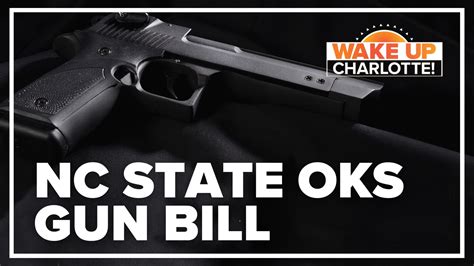Protect Yourself: A Guide to Buying a Pistol in North Carolina
North Carolina residents have the right to own firearms for self-defense, but the process of purchasing a pistol involves navigating specific state and federal laws. This guide aims to provide clear, accurate information to help you understand the process of legally buying a pistol in North Carolina. Disclaimer: This information is for educational purposes only and should not be considered legal advice. Always consult with legal counsel for specific guidance regarding firearms laws.
What are the North Carolina Pistol Purchase Requirements?
North Carolina's pistol purchase laws are relatively straightforward, but understanding them is crucial to avoid legal issues. The key requirements include:
- Age: You must be at least 21 years old to purchase a handgun in North Carolina.
- Background Check: All handgun purchases from licensed dealers are subject to a National Instant Criminal Background Check System (NICS) check. This involves providing personal information to the dealer, who then submits it to the FBI for processing.
- Legal Residency: You must be a legal resident of North Carolina. This generally means having a North Carolina driver's license or state-issued identification card.
- No Felonies or Certain Misdemeanors: You cannot purchase a handgun if you've been convicted of a felony or certain misdemeanors, including domestic violence.
- Mental Health Status: Individuals adjudicated mentally defective or committed to a mental institution are generally prohibited from purchasing handguns.
- Compliance with Federal Laws: North Carolina's laws are in addition to, and cannot contradict, federal firearms laws.
What if I want to buy a handgun from a private seller?
Purchasing a handgun from a private seller in North Carolina is legal, but it involves different procedures. While a NICS check isn't mandated for private sales, the buyer and seller are still legally bound by federal and state laws regarding who can legally possess a firearm. It's strongly recommended to conduct the transaction through a licensed firearms dealer, even in a private sale, to ensure compliance with all applicable background checks.
What about concealed carry permits?
A North Carolina concealed handgun permit allows you to carry a concealed handgun in public. This is a separate process from purchasing a handgun and requires additional steps, including a background check and training. While not required to purchase a handgun, obtaining a permit significantly expands where you can legally carry your firearm.
What are the waiting periods for purchasing a handgun in NC?
There is no mandatory waiting period for purchasing a handgun from a licensed firearms dealer in North Carolina once the NICS check is completed. However, delays can occur if the background check is pending.
What types of handguns are legal to own in North Carolina?
North Carolina doesn't prohibit specific types of handguns unless they fall under federal restrictions (like fully automatic weapons). However, local ordinances may impose additional restrictions. Always check local laws before purchasing any firearm.
Where can I find more information on North Carolina firearm laws?
For the most up-to-date and comprehensive information on North Carolina firearms laws, consult the North Carolina General Statutes and the official website of the North Carolina State Bureau of Investigation (SBI). You should also consult with a qualified legal professional to ensure you are fully compliant with all applicable laws.
Conclusion: Responsible Gun Ownership
Purchasing a pistol in North Carolina requires understanding and adhering to both state and federal regulations. Responsible gun ownership includes not only following the law but also prioritizing safe storage, proper training, and a commitment to safe handling practices. This guide provides a starting point; thorough research and legal counsel are crucial to ensure compliance and safe firearm ownership. Remember, this information is for educational purposes only and does not constitute legal advice. Always consult a legal professional for guidance specific to your circumstances.

